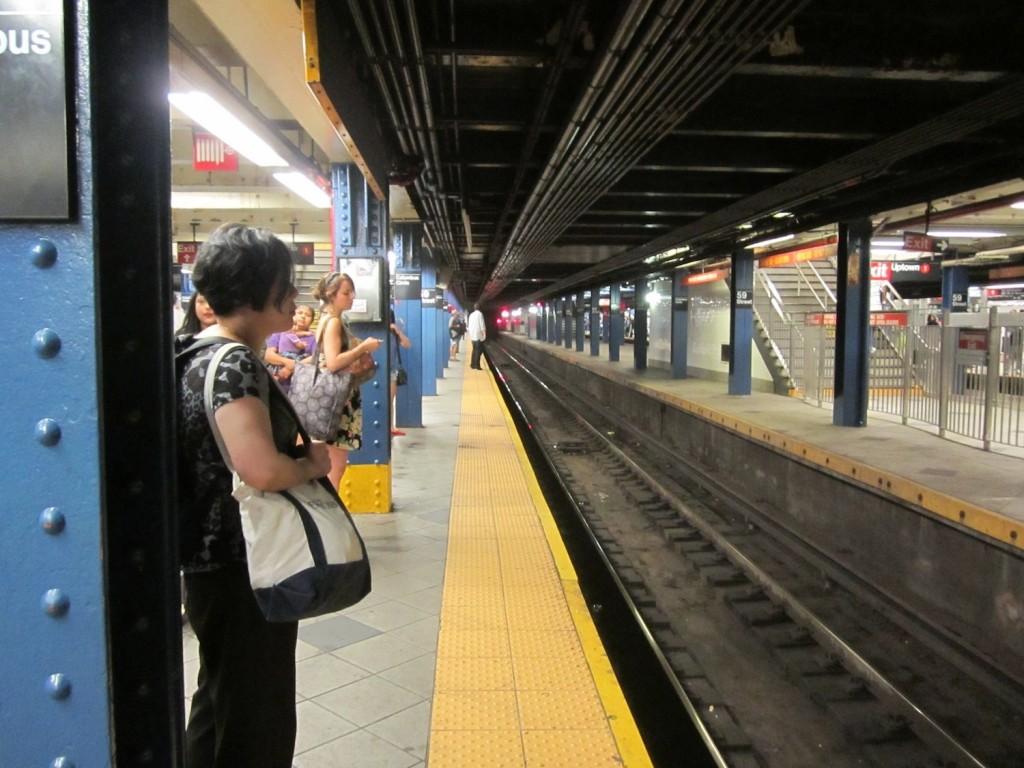Hate Speech in Our Subways
New MTA Ads Promote Islamophobia
New advertisements in the New York MTA branded with Anti-Muslim hate speech is one of the increasing forms of discrimination against Muslims in recent years. (Sara Azoulay/The Observer)
September 7, 2012

As a white Muslim woman who does not wear a headscarf, I have been able to avoid many of the humiliating and scarring experiences that my Muslim peers have faced simply because my appearance does not make my Muslim religion known. As a young girl, I saw the different reactions I would receive depending on whether or not I was wearing a headscarf. With it on, I would often receive pitying stares, mean stares, uninviting body language, whispers or exaggerated kindness from women who assumed I was oppressed and in need of rescue. As a child, I internalized these reactions and as a result decided that my beliefs and true self should be kept hidden if I wanted to be accepted by others.
To be Muslim and to live in America has become a challenging and often damaging combination for thousands of Muslims and Arab-Americans. The scale at which Muslims and their religion, Islam, have been attacked, degraded, defamed and falsely incriminated in recent years has culminated in widespread discrimination against Muslims. There is the sentiment that Muslims and Arab-Americans do not belong in their own American society… that they should “go back to their country.”
When looking for the source of this discrimination, one needn’t look far. This past summer, a federal judge overruled the MTA’s ban on Pamela Geller’s advertisement that implies Muslims are “savages.” As a result, these advertisements which carry the slogan, “In any war between the civilized man and the savage, support the civilized man. Support Israel, defeat Jihad,” will be plastered in Metro North stations and on over 300 MTA buses.
Moni Basu of CNN reports that hate crimes against Muslims increased by 50 percent in 2010.
And from being “randomly” stopped and frisked by police officers to having their businesses, supermarkets and homes surveillanced by the NYPD for over six years, it is easy to understand why Muslims feel unwanted or out of place within their own communities. While this kind of religious intolerance and discrimination has been ongoing, psychologists like Mona Amer of Yale University have recently begun to study the impact this type of social discrimination and isolation can have on its victims. Amer’s 2006 study found that 50 percent of Arab-Americans surveyed had clinical signs of depression. She argues that there is a correlation between discrimination and hate crimes and the worsening mental health in studies of Muslims and Arab-Americans since 9/11.”
The question must be asked, how will the hate speech on these MTA ads affect the way Muslims view themselves and their place in the world? How can Muslim parents send their children to school on a bus that implies that their religion, heritage and culture can be summed up in one word: “savage?”
I will be the first to admit that whenever I pass an NYPD bag-search table in the subway, I feel a wave of relief that I am not wearing a headscarf. This moment of relief is sparked by the realization that I, as a white woman, have a free pass and that I am excluded from this degrading practice and that my civil rights will not be violated. Pamela Geller’s advertisement reinforces this invisible divide within American culture. It reinforces the privilege of being a “majority” and the oppression faced as a “minority.”
In a city as diverse as NYC, the MTA system is comparable to a piece of thread that ties all of the NYC boroughs and their residents together. As New Yorkers, we cannot allow this uniting force to be tainted or compromised by such a dehumanizing and discriminatory message. I believe that it is our responsibility as New Yorkers, whether we are Muslim or non-Muslim, whether we “look Muslim” or “don’t look Muslim” to speak out against injustice and stop the spread of hatred that is silently harming so many.












